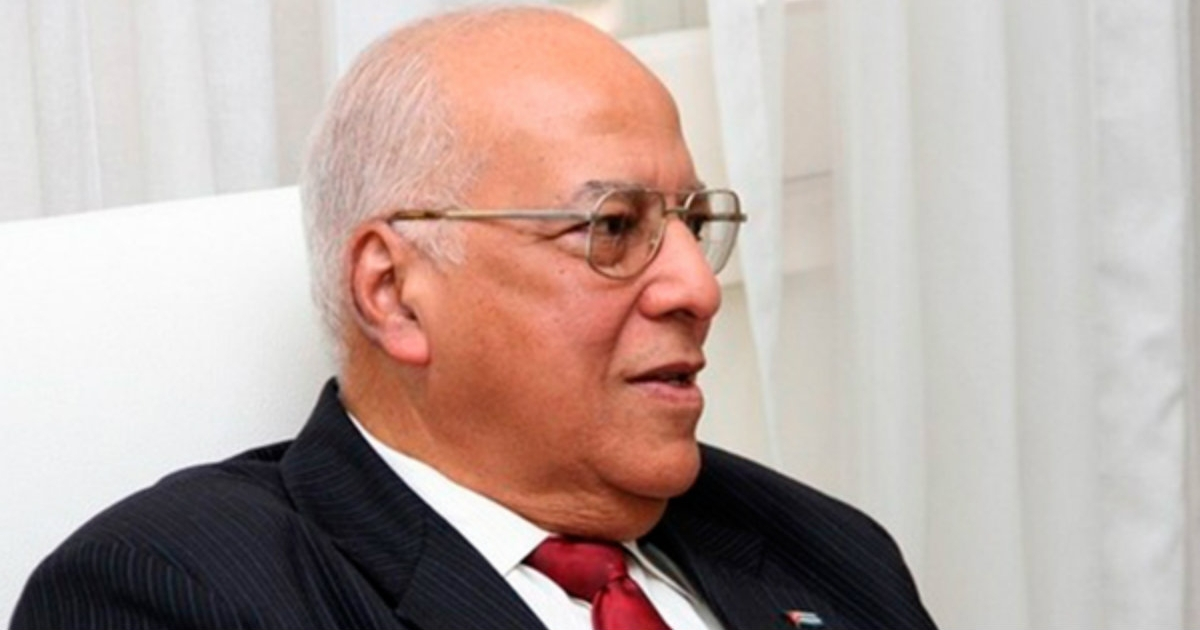
Ricardo Cabrisas Ruiz He is still the Cuban super minister. At 86 years old and, since the premature death of Major General Luis A. Rodríguez López-Calleja, he has become the lens through which many senior officials of late Castroism look at themselves, to try to learn the keys to survival.
"Cabrisas has been the face of our country before external creditors, in times as complicated as those we live in, and the death of López-Calleja was an opportunity, which he has known how to take advantage of; although he always enjoyed the trust of Fidel (Castro) and Raúl," says a former vice president of the Council of Ministers, who knows him well.
Raúl Castro is enjoying retirement almost as he pleases; and it is not an occurrence or improvisation, but rather the acceptance of the failure of his reformist attempt, torpedoed with heavy-caliber artillery by the convalescent in chief.
President Miguel Díaz-Canel and his Minister of Economy, Alejandro Gil, still remember the afternoon when Cabrisas told them that he would no longer deal with the then all-powerful czar of GAESA because he is "a colleague who speaks to you by chewing his words."
Cabrisas's refusal to follow the game of subordination to López-Calleja served as an incentive for Díaz-Canel to order Gil: Buy chicken and don't consult...
The late Castro regime is still mourning López-Calleja, who came to control everything and command everything; but with the advantage of not showing his face to the impoverished Cubans, who did not understand his selfishness of continuing to build hotels in the midst of the coronavirus pandemic, when hundreds of citizens died due to lack of oxygen and medicine.
Then, the vassalage of the communist party and the Cuban government to a Chicago boy, supported by Raúl Castro and assisted by his son Raúl G. Rodríguez Castro "El Cangrejo", with less lights than a pirate ship, but who took care of isolating the grandfather from possible negative influences on his interests and keeping his father informed of palace movements.
The inclusion in the Political Bureau and the promotion to major general was the last train to Yuma at the will of Raúl Castro to heal wounds with his ex-son-in-law, before the reaper portrayed him with the silent cruelty that punishes those who believe they were elected by mandate. divine. And even then Cabrisas was there, in the ideal place, at the right time and in the middle of the fragile balance between dinosaurs and innovators, between civilians and military.
Cabrisas's room for maneuver is narrow due to Cuba's bankruptcy, the lack of clear leadership and consensus at the top to advance the many times announced and postponed reforms, and when they have not even been able to reach an agreement to release political prisoners and clear the way towards a negotiation with the United States, accompanied by the European Union and the Vatican.
But an old Intelligence fox, officer Cristal, knows that power confers a different dimension to time and has been savoring for some time the joys of feeling necessary in a court of timorous, lazy officials with a low political and cultural profile, who despise everything ignore, including the wounded Cuban nation.
Knowing that political spheres require having one's own house in order, Cabrisas has begun a reorganization of MINCEX, of which the first decisions have already been leaked, such as the ban on the use of mobile phones during working hours; But he has a cyclopean task ahead of him because the deals continue not to appear, the creditors continue to break piggy banks of patience.
No one at 86 leads a revolution and Cabrisas knows that the Cuban challenges are immeasurable, with the worst possible government in the worst circumstances, where he will do what he can until the body lasts, without giving up defending the legacy of the revolution, to the one who has served with loyalty and discipline since 1959 and had to spend years to overcome her complex for not having participated in the insurrectionary struggle; although now he is on familiar terms with Ramiro Valdés, the last of the Mohicans with desire, diverse readings and measured desire for profit, and the evil Machado Ventura, a sectarian Stakhanovite with wayward children.
What do you think?
COMMENTFiled in:
opinion article: The statements and opinions expressed in this article are the exclusive responsibility of its author and do not necessarily represent the point of view of CiberCuba.